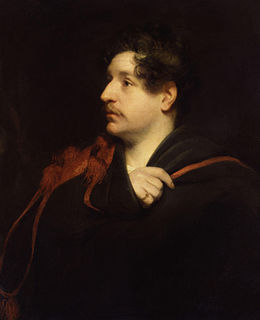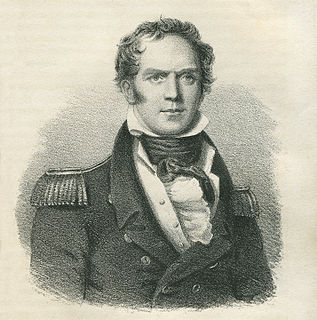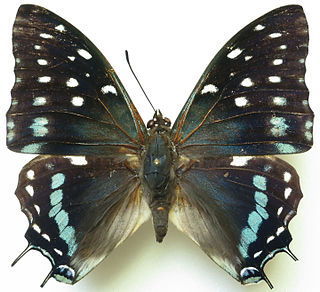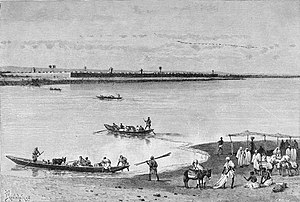
Africa is a continent comprising 63 political territories, representing the largest of the great southward projections from the main mass of Earth's surface. Within its regular outline, it comprises an area of 30,368,609 km2 (11,725,385 sq mi), excluding adjacent islands. Its highest mountain is Mount Kilimanjaro, its largest lake is Lake Victoria.

Vladimir Vladimirovich Nabokov, also known by the pen name Vladimir Sirin, was a Russian-American novelist, poet, translator, and entomologist. Born in Russia, he wrote his first nine novels in Russian (1926–1938) while living in Berlin. He achieved international acclaim and prominence after moving to the United States and beginning to write in English. Nabokov became an American citizen in 1945, but he and his wife returned to Europe in 1961, settling in Montreux, Switzerland.

Alexander Sergeyevich Pushkin was a Russian poet, playwright, and novelist of the Romantic era. He is considered by many to be the greatest Russian poet and the founder of modern Russian literature.

Eugene Onegin is a novel in verse written by Alexander Pushkin. Onegin is considered a classic of Russian literature, and its eponymous protagonist has served as the model for a number of Russian literary heroes. It was published in serial form between 1825 and 1832. The first complete edition was published in 1833, and the currently accepted version is based on the 1837 publication.

The Benue River, previously known as the Chadda River or Tchadda, is the major tributary of the Niger River. The river is approximately 1,400 kilometres (870 mi) long and is almost entirely navigable during the summer months. The size of its basin is 319,000 km2 (123,000 sq mi). As a result, it is an important transportation route in the regions through which it flows.

The Sultanate or Kingdom of Bagirmi or Baghermi was a kingdom and Islamic sultanate southeast of Lake Chad in central Africa. It was founded in either 1480 or 1522 and lasted until 1897, when it became a French protectorate. Its capital was Massenya, north of the Chari River and close to the border to modern Cameroon. The kings wore the title Mbang.

Dixon Denham was an English soldier, explorer of West Central Africa, and ultimately Governor of Sierra Leone.

Bain Hugh Clapperton was a Scottish naval officer and explorer of West and Central Africa.

Abram Petrovich Gannibal, also Hannibal or Ganibal, or Abram Hannibal or Abram Petrov, was a Russian military engineer, major-general, and nobleman of sub-Saharan African origin. Kidnapped as a child by Ottomans, Gannibal was traded to Russia and presented as a gift to Peter the Great, where he was freed, adopted and raised in the Emperor's court household as his godson.

The Far North Region, also known as the Extreme North Region, is the northernmost constituent province of the Republic of Cameroon. It borders the North Region to the south, Chad to the east, and Nigeria to the west. The capital is Maroua.

The Sao civilization flourished in Central Africa from ca. the fourth or sixth century BC to as late as the sixteenth century AD. The Sao lived by the Chari River basin in territory that later became part of Cameroon and Chad. They are the earliest civilization to have left clear traces of their presence in the territory of modern Cameroon. Sometime around the 16th century, conversion to Islam changed the cultural identity of the former Sao. Today, several ethnic groups of northern Cameroon and southern Chad, but particularly the Sara, Kotoko, claim descent from the civilization of the Sao.
Hugh Barnes is a journalist and specialist on Russian matters. Born in London, he was educated at Oxford and Cambridge universities. He covered the wars in Kosovo and Afghanistan for various newspapers in the UK and abroad. He has also been the director of the democracy and conflict programme at the Foreign Policy Centre.
The Poney du Logone is a breed of small horse or pony from the area of the Logone River in Chad and Cameroon, in west central Africa. It is particularly associated with the Musey or Moussey people of that region, and may also be known as the Poney Musey or Poney Mousseye.

Clapperton's spurfowl is a species of bird in the family Phasianidae. It is found in Cameroon, Central African Republic, Chad, Eritrea, Ethiopia, Mali, Mauritania, Niger, Nigeria, Sudan, and Uganda.

Shehu al-Hajj Muhammad al-Amîn ibn Muhammad al-Kânemî (1776–1837) was an Islamic scholar, teacher, religious and political leader who advised and eventually supplanted the Sayfawa dynasty of the Kanem-Bornu Empire. In 1846, Al-Kanemi's son Umar I ibn Muhammad al-Amin became the sole ruler of Borno, an event which marked the end of the Sayfawa dynasty's eight hundred year rule. The current Shehu of Bornu, a traditional ruler whose seat remains in modern Borno State, Nigeria, is descended from Al-Kanemi.
Afro-Russians or Black Russians are people of African descent that have migrated to and settled in Russia. The Metis Foundation estimates that there were about 50,000 Afro-Russians in 2009.

Charaxes etesipe, the savannah charaxes or scarce forest emperor, is a butterfly of the family Nymphalidae.

Papilio rex, the regal swallowtail or king papilio, is a butterfly of the family Papilionidae. It is found in Africa. It is a semi-montane and montane forest species. The larvae feed on Teclea tricocarpa, Teclea stuhlmanni, Calodendrum, Citrus, Clausena, Fagara and Toddalia species. In the early morning and late afternoon adilts of both sexes descend from the forest canopy to feed from the flowers of Lantana, Impatiens and Bougainvillea.It hilltops on granite outcrops and mud puddles.
Dieudonné Gnammankou is a Beninese historian and translator.

The West and Central African Rift System (WCARS) is a rift system composed of two coeval Cretaceous rift sub-systems, the West African Rift sub-system (WAS) and the Central African Rift sub-system (CAS). These are genetically related, but are physically separated and show structural differences. The Logone Birni Basin constitutes a transitional area between the two sub-systems.


















